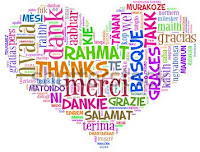My pastor is an effective communicator and someone I would
like to model myself after. Pastor Steve has a way with words. He captures my
attention with interesting stories, making them come alive. He goes on to make
the connection to scripture in a practical way that allows me and over 500
others to introspectively consider the condition of our heart and our commitment
to living a godly life. He carries himself with a mix of confidence and
humility; the most authentic person I know. He is bold in the delivery of every
biblical-based message. He communicates a deep concern for us as his church
family and becomes tender hearted and emotional at times. Sometimes his emotion
causes him to pause in a way that makes us pause too, considering what
power-filled words moved him so. He stands in the middle of the stage without a
podium so he can edge freely to the right or left; balancing his attention across the auditorium. His eyes are always looking upon
us, slowly scanning the faces of friends, but never lingering so long that it becomes
uncomfortable. Hand gestures add emphasis without becoming a distraction.
I would most definitely like to emulate the communication
style of Pastor Steve. I believe in speaking honestly, boldly and sensitively,
with authenticity as the foundation. A good sermon may be remembered briefly but
consistently strong messages from the mouth of a respected leader can be life
changing.


